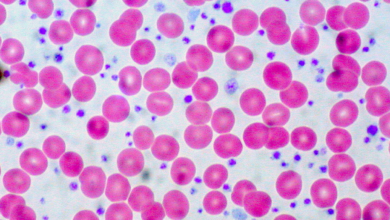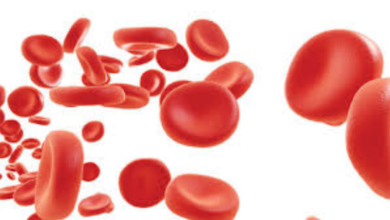Myelodysplastic Syndromes (MDS)
Understanding Myelodysplastic Syndromes (MDS): A Comprehensive Guide

What is Myelodysplastic Syndromes (MDS)?
Myelodysplastic syndromes (MDS) are a group of blood disorders that affect the bone marrow. In MDS, the bone marrow fails to produce enough healthy blood cells, leading to anemia, bleeding, and infections.
Types of Myelodysplastic Syndromes (MDS)
MDS is categorized into different subtypes based on the specific abnormalities in the bone marrow cells and the severity of the disease. Some common subtypes include:
• Refractory anemia: A mild form of MDS characterized by anemia.
• Refractory anemia with ring sideroblasts: A type of MDS where iron builds up in the bone marrow cells.
• Refractory anemia with excess blasts: A more advanced form of MDS with a higher number of abnormal blood cells.
• Refractory anemia with excess blasts in transformation: A more aggressive form of MDS that can progress to acute myeloid leukemia.
Symptoms of Myelodysplastic Syndromes (MDS)
Symptoms of MDS can vary depending on the severity of the disease. Common symptoms include:
• Fatigue
• Weakness
• Shortness of breath
• Frequent infections
• Easy bleeding or bruising
• Pale skin
Causes of Myelodysplastic Syndromes (MDS)
The exact causes of MDS are not fully understood. However, certain factors may increase the risk, such as:
• Exposure to radiation or certain chemicals: Exposure to these substances can damage bone marrow cells.
• Previous chemotherapy or radiation therapy: Prior cancer treatment can increase the risk of MDS.
• Genetic factors: Certain genetic mutations can increase the risk.
Who Can Suffer from Myelodysplastic Syndromes (MDS)?
MDS primarily affects older adults.
Diagnostic Tests for Myelodysplastic Syndromes (MDS)
To diagnose MDS, a doctor may use a combination of tests, including:
• Complete blood count (CBC): To check for abnormalities in the blood cells.
• Bone marrow aspiration and biopsy: To examine bone marrow cells.
• Cytogenetic analysis: To identify specific genetic abnormalities in the bone marrow cells.
• Flow cytometry: A laboratory technique to identify specific types of cells.
Stages of Myelodysplastic Syndromes (MDS)
MDS is typically staged based on the severity of the disease and the percentage of abnormal blood cells in the bone marrow. The World Health Organization (WHO) classification system is commonly used to stage MDS.
Please note: Early detection and timely treatment are crucial for a better prognosis. If you experience any symptoms of MDS, consult a healthcare professional immediately.
Treatment of Myelodysplastic Syndromes (MDS)
The treatment for MDS depends on the severity of the disease and the patient’s overall health. Common treatment options include:
• Watchful waiting: For mild cases, monitoring the disease without immediate treatment may be an option.
• Blood transfusions: To treat anemia.
• Chemotherapy: To reduce the number of abnormal blood cells.
• Stem cell transplantation: A more aggressive treatment option that involves replacing damaged bone marrow with healthy stem cells.
• Immunotherapy: To boost the body’s immune system to fight cancer cells.
• Supportive care: To manage symptoms like fatigue, infections, and bleeding.
Diet and Myelodysplastic Syndromes (MDS) Prevention
While a healthy diet can support overall health and strengthen the immune system, it cannot directly prevent MDS. However, maintaining a balanced diet can help the body fight infection and maintain overall well-being.
Here are some general dietary recommendations:
• A balanced diet: A diet rich in fruits, vegetables, and whole grains can help.
• Limit processed foods and sugary drinks: These can contribute to weight gain and other health problems.
• Maintain a healthy weight: Obesity is linked to an increased risk of certain cancers.
Overall Survival Rate of Myelodysplastic Syndromes (MDS)
The overall survival rate for MDS varies depending on the specific subtype and the stage of the disease. Early detection and timely treatment can improve the prognosis.
Doctor to Consult
A hematologist-oncologist is the best doctor to consult for MDS.
Diseases Associated with Myelodysplastic Syndromes (MDS)
MDS is often associated with other blood disorders, such as acute myeloid leukemia (AML).
How to Prevent Myelodysplastic Syndromes (MDS)
While there’s no guaranteed way to prevent MDS, limiting exposure to certain risk factors can help reduce the risk:
• Limit exposure to radiation and certain chemicals: Exposure to these substances can increase the risk of certain types of cancer.
• Maintain a healthy weight: Obesity is linked to an increased risk of certain cancers.
• Regular check-ups: Regular check-ups can help detect any abnormalities early on.
• Healthy lifestyle: A healthy lifestyle, including a balanced diet and regular exercise, can help boost the immune system.





